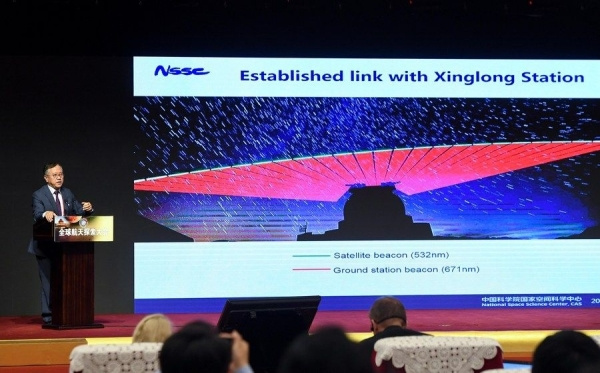

A thousand people may have a thousand answers as to why we explore space. For 64-year-old Chinese scientist Wu Ji, exploring space has a more self-reflective meaning.
"When one enters space, one will realize that human beings are an indivisible whole. Regardless of skin color, they have far more in common than they have differences," says Wu, chairman of the Chinese Society of Space Research.
It is under this belief that, for more than two decades, Wu has been persisting in one thing-promoting international cooperation in the field of space science.
In July, at the 44th Scientific Assembly of the Committee on Space Research in Greece, Wu was awarded the International Cooperation Medal, which recognizes scientists who have made outstanding contributions to international cooperation in space science.
This is the first time in the 38 years since the award was established that it has been presented to a Chinese scientist.
Like many space scientists, Wu's initial dream was illuminated by a "star".
The sight of China's first satellite Dongfanghong-1 in the night sky over 50 years ago lingered in Wu's memory. From then on, he aspired to explore space further.
In the 1980s, Wu studied at the European Space Agency, where he stepped through the door of space science research. "Many of the partners I worked with back then have become my lifelong friends and I built up contacts for later international cooperation," he says.
In 1994, after completing his postdoctoral research in Denmark, Wu returned to work in China.
In 1997, Wu took charge of the Double Star space mission, the first space science program in China. Collaborating with the ESA's Cluster mission, the program achieved six-point coordinated measurements of the Earth's magnetosphere for the first time in human history. The joint international team won the Laurels Team Achievement Award by the International Academy of Astronautics in 2010.
Wu believes that the most important thing in the process of international cooperation is communication and trust. "Because of the differences in management style and culture, there was friction at the beginning, but it worked out later through cooperation."